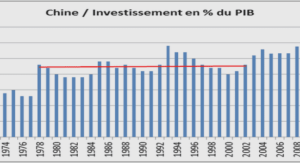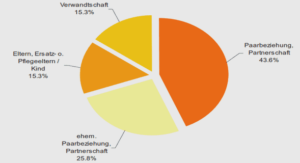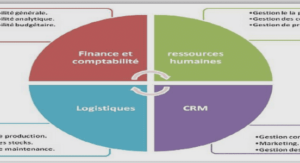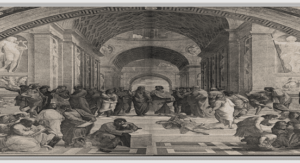POLITICAL INSTABILITY IN AFRICA FROM
THE 1990s TO THE PRESENT
CONCERNS ABOUT POLITICAL STABILITY
If in many areas of the continent populations are still complaining about instability it is because peace negotiations fail. We know when uprisings and conflicts start but we do not really know when and how they end up. It is never easy to unite people who are fighting with weapons, and any kind of sword that can harm others. But it is compulsory to reconcile in order to promote peace and security without which any development is possible. To do so, there are many stages such as the secret negotiations, agreements and early diplomaticy. 1- The Impact of Preventive Diplomacy At the beginning of a crisis many actors who have some experience always take actions susceptible to prevent the situation from becoming unbearable. Some wise people that are concerned about peace and development always contact each other, exchange in order to see what is possible to do. Those actors might not come necessarily from the country which is going through conflicts. Sometimes, we notice that they live very far away but because of the advancement of the new technologies, they can be easily aware of what is going on elsewbere. Without many people being aware of that, these people get involved in the fight explaining to the protagonists of the crisis the risks and the dangers not only their country is running but how this can affect easily the sub-region and even beyond. There is therefore a must to deter the main concerned people of the crisis to talk with them. One of the major causes of the political instability in Africa is about the way people are so fond of the personal gain instead of seeking the collective one. The way a country is run, the way the little resources are managed this can be a cause of troubles and misunderstanding that is why those who are at the head of the states must be open minded and wise enough to improve their relationships with their citizens because one cannot rule without thinking about the quality of his relationships that after all seems paramount for not only peace and stability but also abou development. Issues about political instability involve many aspects. In this regard, everything depends on the responsabilty and maturity. This aspect does not refer only to those who are in power but even the opposition leaders given that the political unrests are meant to be the consequences of the clashes between these two key political actors: power and the opposition. Many people play a tremendous role in vulnerable and fragile countries warning the protagonists about what will happen in the future if they do not change their mind and seek 100 peace and stability in everything they are doing. The key actors get involved in the fight earlier but unfortunately to find the way out the predicament sometimes it is far to be easy. The UN has its representatives in many regions and sub-regions which are on the ground but the protection of the personal gain and interests makes the task very complex. In Burundi precisely in 2015 when the president Pierre Nkurunziza was trying to change the constitution in order to run for the third term presidential election, freedom fighters stood up as one person and started negotiating, convincing people to seek peace, the collective interest than the personal one but the ruling party stood its ground and continued doing everything that can help them run the third presidential election by force. Many of his close collaborators resigned and sought refuge outside the country because they were aware that the regime of Nkurunziza was on the wrong path. The escalation of violence, the way innocent people, civilians were killed daily, every day God sent in the clashes between the army and those who did not want to see the Head of the State run again. It is really a pity that so far many leaders in the continent have not understood the philosophy of power despite the examples set by some like Léopold Sédar Senghor, Madiba Mandela as they resigned. The anti third mandate movement of Pierre Nkurunziza were adamant and categorical because they understood what their president intended to do. If he, was allowed to run again he will do everything possible to stay in power lifelong as it has been the case of Oumar Bongo of Gabon, Gnassingbé Eyadema of Togo and so forth. Now the peace keeping actors understand very well the situation, therefore, they did everything to convince him but in vain. Before such a situation, Martin Luther King appeals to the world: ”La race humaine doit sortir des conflits en rejetant la vengeance, l‟agression et l‟esprit de revanche. Le moyen d‟en sortir est l‟amour » «The human race must get out of conflicts by rejecting vengeance, the attack and the spirit of revenge. The mean to get out of it is love” The hindrances of democracy especially the prevention of peace are so complex to deal with. When the preventive peace mission fails, it means that the conflict continues with the negative consequences we all know. The more the crisis takes time to be solved, the more Martin Luther King in Intelligences Magazine, 60th edition,p.5 122 My Translation 101 complicated it becomes to deal with, the more worried the populations are. Many leaders do not care about the escalation of violence even if people are being killed for nothing. As a human being, one can make easily a mistake when he does not want to take into account criticisms and reactions of people. The advice and the role the surrounding of Head of the State play sometimes is not profitable for the promotion of peace. Those are closer to the state men sometimes are so afraid of their mentor that they are unable to tell them the truth about what he should do or should not do. Building democratic state like that is the preparation of endless war since sometimes many actors watch flaws but keep quiet. Contrary to that, the opposition leaders very often react but sometimes, these reactions are so harsh and might arouse the discontentment of their vis à vis. Issues on the stability are very important to the extent that no advancement, no development is possible without peace. At the UA summit in May 26th 2013 it was decided that the head of the state of Tanzania Jekaya Mrisho Kikwete should intervene in the crisis that was going on in Rwanda in order to promote peace and security but the task of mediation was not easy at all because the main actors, the protagonists were not ready to engage any discussion. Many African leaders therefore misunderstand the role of being a president. Besides, this attitude consisting in being categorical, there is the notion of enemy that plunders the relationships really between the main actors. Sometimes, many are not even ready to encounter their enemy. But, there cannot be peace when people who do not understand each other are not ready to accept others as brothers. Julien Freund warns: “La paix qui exclut l‟ennemi s‟appelle guerre”123 “The peace that excludes the enemy is called war”
Emergence of Civil Society Organisations and the Promotion of Mutual Understanding and Tolerance
Many actors always show their commitment and full intentions to make peace and security be part of their daily lives. The civil society organisations are one of these actors which demonstrate their top concern about stability in the continent. Not only are they well organized, but they also know how to defend the common interest. They play the role of guardian watching what is going on in the country, think about what to do and react ultimately. Above all, when they think that the populations are sleeping, when politicians adopt behaviours which do not tally with democratic principles but the citizens are not aware of that, the civil society organisations very often raise people up reminding to them that they must be clever enough. Since the onset of the democratization process, we have noticed the emergence of the civil socity organisations in the continent. Their mission is so complex because they are not given the opportunity to work sometimes. The role they play is so difficult to achieve for, when we take into account the way the actors are tortured, or put in jail, one would draw the 128 François Mattei, Laurent Gbagbo Selon François Mattei, Pour la vérité et la justice, Editions du Moment,2014, p.234 129 My Translation 107 conclusion that unless one loves too much his country he then cannot easily get involved in this harsh task but challenges being enourmous people are needed to take actions despite the fact that they risk more often than not their lives. The notion of civil society might have existed even before the onset of the democratization process, but basically, it was from the 1990s that we have experienced the rise and the proliferation of such organizations. They do not work alone, they usually receive support from well known Ngos, and even from the international community. When we look at every angle of the civil society organisations‟ achievements, what strikes at first sight is their courage and commitment they endlessly show to release their nation from the yoke of those who are in power at least make them change their attitude. To come back to the essence of such organisations, people think that it is merely a group of uneducated people or rasta men, those who are idling. But honestly, this conception is wrong because of the way they are well organized and their intellectual background. Mamadou Bamba puts it: “Dans l‟ensemble de ces conflits, on a enregistré un grand engagement des acteurs de la société civile, d‟abord dans la recherche de la paix, ensuite dans sa consolidation à travers les actions de sensibilisation et de formation sur les notions de civisme » 130 «In all those conflicts, people have noticed a huge commitment of the civil society actors, firstly in the quest for peace, then in its consolidation through the sensitization actions and the training on good manners”131 No one denies the fact that democracy remains the major factor that boosts easily development but the phenomenon brings about many problems in the continent. Many people talk about the lack of experience and maturity with regard to the misunderstanding we have been experiencing in many countries. People are aware that there must be such organizations whose role is basically intended to unite, to bring together around the same table politicians, those who are in power and the opposition leaders. In this light, even in the developed democracies terms like “ the right wing ” and “ the left wing ” exist. The same thing can be seen in Africa. But this coexistence in many cases is the result of the huge work of the civil society organisations in using strategies to achieve their target which is nothing but the joy to see all the politicians no matter their position live together. That is another aspect of the job 130 Mamadou, Bamba, Les ménaces émergentes à la paix et à la sécurité en Afrique de l’Ouest et du Centre :De1990 à nos jours, L’Harmattan, Paris, 2015, pp.166-167 131My Translation 108 freedom fighters have been doing, the fact of bringing together those who are at the basis of stability of a given country. Good care must be taken to give more opportunity to people who devote their lives to maintain the stability. The field is so dangerous and risky, that is why more considerations must be given to them in the sense that the task should be carried out properly. They deserve everything except jail and gossip. As a human being, they can be mistaken, but in all, tolerance is very important in democracy since it heals wound easily. There is no point trying to reply showing any anger at all in the direction of those actors. We have noticed that the organization of the elections in Africa has always been a cause of conflicts in the continent. From this perspective the civil society organisations intervene a lot just to make the main actors abide by the constitution. The interpretation of the constitution is sometimes differently appreciated, that is why it is worth saying that the phenomenon requires many dispositions of the actors if we want everything to occur in a peaceful atmosphere. The civil organizations as a guardian react just to make everyone do things the right way. This task implies some courage. On the one hand, people hate a lot the truth and on the other hand, it is not easy to tell to one‟s fellows citizens the bare truth. The civil actors through this risky attitude recommand and guide those who are involved in the organization of the nation. There are many steps, fields in which the civil organizations intervene. Besides the period preceeding the elections, that is so obvious that the democratization process too is a source of clashes in many countries, the period the elections take place needs the strong implication of the neutral organizations like the civil society organisations. During the elections, the international organizations send many people to supervise the situation but it is not enough, other forces support and bring their contributions. Bjorn Beckman sheds light on the importance of the civil society organisations in the democratization process: 109 “Pluralist democratic theory suggests that democracy needs to be supported by a wide range of associations and other organized collectivities capable of articulating the interests of their members, moulding and constraining the power of the state”132 In many countries, the freedom fighters organizations came from nowhere but promptly emerged from the predicament the country is going through. The beginning of many civil society organisations were like that. From nothing especially without any means and support they emerge and contribute a lot to the advancement of democracy. The case of “Y en marre” of Senegal is so interesting and illustrative. When the former head of the state of Senegal, Abdoulaye Wade had the intention to run for the third mandate, there have been pressures on him. The international community was totally against the attitude of president Abdoulaye Wade showing its concerns about all the troubles this might bring. Likewise, the civil society organisation took an important part in the fight just to make president Abdoulaye Wade change his mind. It was not easy at all because Abdoulaye Wade stood his ground, until he was defeated in the elections. In this regard, the third president of Senegal after the independence was sanctioned for his tough decision. Civil society organisations were one of the main actors that sensitized the masses throughout the country making them aware of the dangers their country was running if ever president Abdoulaye Wade was re-elected. When another person took power, president Macky Sall, after the elections, the populations enjoyed a lot for the victory which definitely should not be possible without the position of the civil organizations. Both the scenes and news were released and shown by the media all over the world in the sense that many countries like Togo, Congo, Burkina Faso to name but a few facing similar problems tried to imitate what happened in Senegal successfully, that is the emergence of the civil society organisations and their strategical role. In politics, sometimes, it is very important to imitate the good actions and achievements that happened elsewhere. Before all these challenges, organizations that are so concerned about peace take their courage in the two hands, fearlessly express themselves even though they know very well that they are taking a big risk. The contribution of the civil society organisations is so visible in the history of Burkina Faso. When democracy is in danger, when the rulers do not want to abide by the constitution and do whatever they can that might help them achieve only their purposes, protecting only 132 Bjorn Beckman, “Interest Groups and the Construction of Democratic Space” in Expending Democratic Space in Nigeria” edited by Jibrin Ibrahim, Codesria National Studies Series, 2003, p.24 110 their interests this attitude prevents democracy from advancing. The simple observer can think that when it comes like that, this is exclusively a bad thing, but when one reflects thoroughly on the situation, ultimately the conclusion we must draw is even when the situation is complex it helps the masses, freedom fighters find the adequate way out. The complexity of the situation makes people complain a lot but from a deep analysis we understand that they should not. One of the palatable illustrations is what happened in Burkina Faso and led to the departure of Blaise Compaoré from power. Who knows that Blaise Compaoré will leave the power one day ? It is really incredible and surprising. When the situation was unbearable, the main actors that were in the front were definitely the leaders of civil society organisation. It seems that the complex political situation sparks itself solutions. The focal point of the fight is on the mobilization, the way committed people are so strong in designing strategies which are so fruitful for the fight.
INTRODUCTION |




